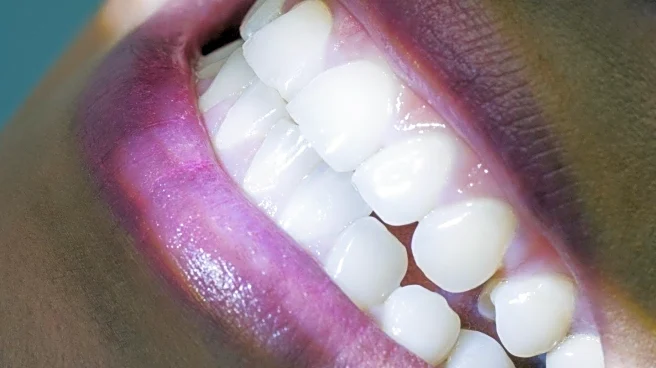What is the story about?
What's Happening?
A new study suggests that bacteria commonly found in the mouth may contribute to heart attacks. Researchers from Tampere University in Finland discovered genetic material from oral bacteria within atherosclerotic plaques in coronary arteries. The study involved analyzing plaques from over 200 patients with coronary artery disease, revealing a significant presence of oral streptococci. These bacteria were found in 42% of plaques from patients who died suddenly and those who underwent surgery. The findings indicate a strong correlation between oral bacteria and severe atherosclerosis, potentially leading to heart attacks.
Why It's Important?
This research highlights the critical link between oral health and cardiovascular health, suggesting that poor oral hygiene could increase the risk of heart disease. Understanding the role of oral bacteria in heart attacks could lead to new diagnostic and preventive measures, emphasizing the importance of maintaining good oral hygiene. The study opens avenues for further investigation into how oral bacteria contribute to cardiovascular disease, potentially leading to innovative treatments and prevention strategies.
What's Next?
Further research is needed to explore the mechanisms by which oral bacteria influence heart health and identify factors that exacerbate their impact. Investigating how these bacteria reach the coronary arteries and trigger inflammation could lead to new therapeutic approaches. Public health initiatives may focus on raising awareness about the importance of oral hygiene in preventing heart disease.
Beyond the Headlines
The study underscores the need for interdisciplinary approaches in healthcare, integrating dental and cardiovascular care to improve patient outcomes. It also raises questions about the broader implications of microbial health on systemic diseases, potentially influencing future research and healthcare practices.
















